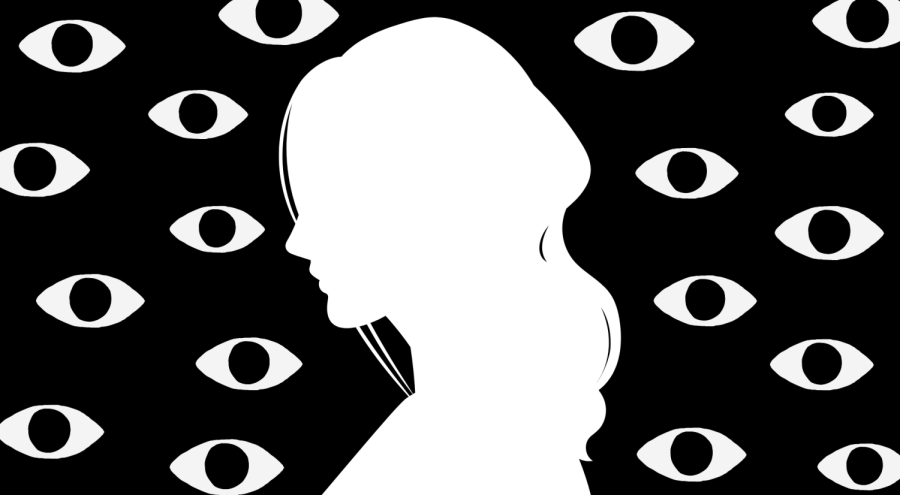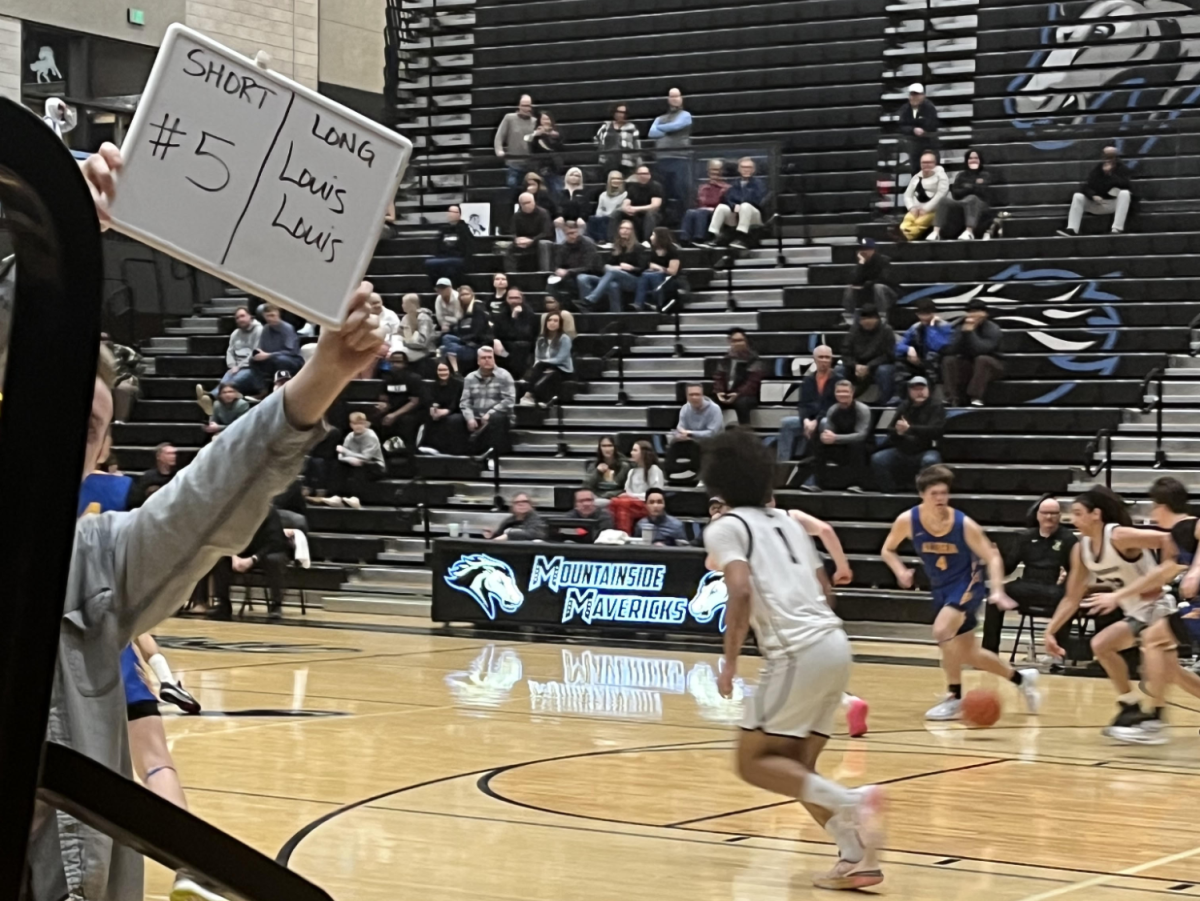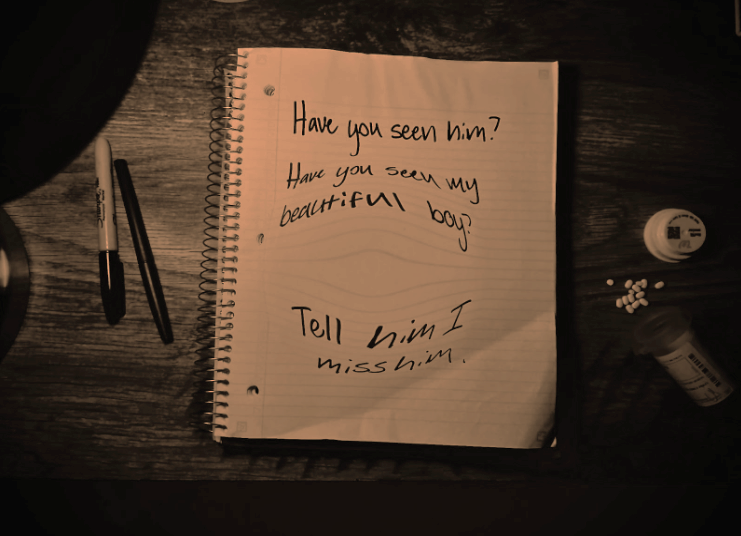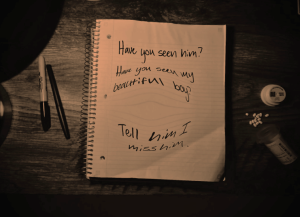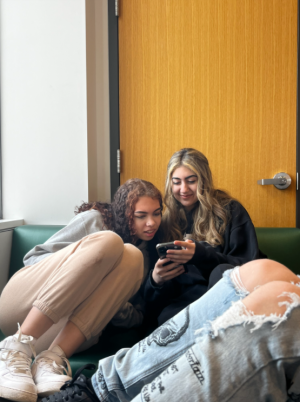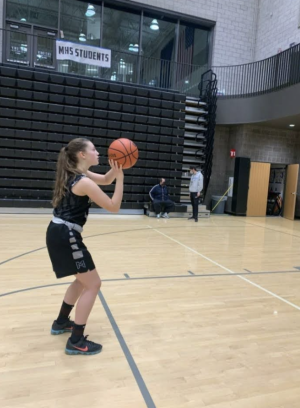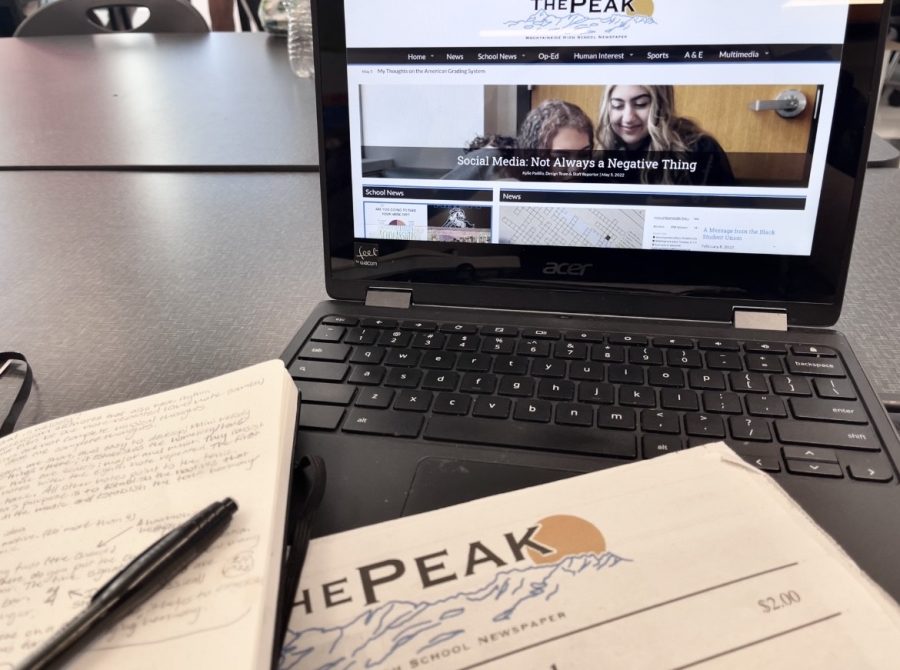Social Stress at MHS
The silhouette of a girl in front of a wall of creepy eyes.
March 23, 2023
Social anxiety. It’s a universal topic, but the main demographic it tends to lean toward is teenagers. It’s a common thing for high schoolers to experience, more common than you might think. If you’re struggling with social anxiety, you’re probably familiar with the fear of being judged, the feeling of eyes on you wherever you go. Being hyper aware of every single thing you do, worrying you’ll embarrass yourself in public. You’re constantly in your head, surrounded by these thoughts. What do they think of me? Do I look stupid? Why am I like this? It’s a never-ending cycle, you’re practically drowning in your own mind.
If you’ve ever felt alone with your social anxiety here at Mountainside, over 60% of students that answered the “Social Anxiety at MHS” survey are dealing with the same thing. Your situations may differ slightly, but there’s a general idea that’s shared.
According to the survey, giving presentations was one of the biggest things students with social anxiety struggled with. Shaking, sweating, stuttering, shutting down, forgetting what to say. Other responses included not being able to focus in class, participate, or ask questions. Having difficulty working in a group, and not making or having friends.
Other students talked about the struggle of getting work done efficiently, spacing out, overthinking, having panic attacks and anxiety attacks, and being scared to tell others their thoughts. Avoiding big, social situations, not wanting to be first or last to finish a test, and panicking when put on the spot. Some people don’t talk to others at all, or don’t like to talk to people they don’t know well. They prefer doing individual work, most of the time being able to work better alone or with people they know or are comfortable with. Multiple students said they get ignored in groups. All in all, there were many responses that were similar, which goes to show even more that you’re not alone.
One student said they get lower grades on projects and performance pieces due to the fact they stutter and shut down from anxiety when performing in front of the class. This is unfair. It’s not easy to present in front of a class in the first place, but with social anxiety on top of that, it’s even harder, to the point where you heat up, shake, and so on. Teachers should keep their students’ situations in mind and not score them poorly just because of their anxiety. Most of the time, they’re trying their best.
“It makes it really hard to do anything, other than acting in drama,” one particularly interesting answer said. It’s interesting because you’d think acting with social anxiety is hard, but it could actually be the opposite. Becoming a fictional character and basically living through them can be liberating, because onstage, you’re pretending. Your day-to-day life doesn’t matter onstage. In that moment, you’re living in a completely different world, with different settings, different people, and different conflicts.
“There is a lot of pressure to act perfect all the time,” oone response stated. This pressure can come from many things such as grades, family, friends, relationships, physical appearance, personality, the way you carry yourself, and more. The pressure to be perfect is the main reason we lose motivation to succeed. The world loves the false image of perfection because it’s flawless, unblemished, and unbroken. It’s not easy to face the truth, because the truth isn’t as perfect. Far from it. Imperfect.
Making mistakes needs to be more normalized. Students should be given the space to be vulnerable and open, because at the end of the day, that’s what creates community. It’s relieving to connect with people similar to you and form deeper bonds with them. It’s raw, it’s real, and there’s no filter whatsoever. Unfortunately, factors like modern-day technology – phones – can make it difficult for teens to talk openly about these struggles. Social media can increase self-consciousness and worries of being judged, and obstruct the capability to interact with others in-person.
Deep breathing, taking the focus off yourself, and changing a negative mindset are all ways you can cope with social anxiety. Having a healthy lifestyle is important too, which can be hard for high school students with the amount of schoolwork, sports, extracurriculars, etc. It’ll take effort to balance it all, but find what works best for you and stick to it. A healthy lifestyle would include eating balanced meals, doing exercise, and getting enough sleep.
To get better at socializing, gradually exposing yourself can help. Maybe start a conversation by asking a simple question, or giving a compliment. Start with small talk and build on it. In the end, practice makes progress, not perfect. Facing your fears is helpful in the long-run, too. Start small, and gradually make your way up. Take baby steps, don’t jump into it head-first.
Getting a counselor or therapist is a good idea if you feel like you’ve reached a point where social anxiety is interfering with your life. It might be hard at first, and while counseling or therapy necessarily “isn’t for everybody”, giving it a try wouldn’t hurt, and you may be able to benefit from it to a certain extent.
Communicating with teachers and/or counselors can be helpful, as well. Telling them about your situation so that they know what you’re going through creates communication and trust.
Teachers can support their students by letting them take breaks. Allowing them to take a walk, or suggest the Wellness Center. Providing accommodations for presentations and anything else a student might need, and always being open-minded.
The lack of social anxiety awareness makes it harder for students dealing with it to reach out for help. It’s a topic that’s not talked about enough, especially in schools. To bring more awareness, there could be a social anxiety slideshow created for Advisory. Fundraisers are also a good idea, organizing activities for the school to raise money and awareness.
In general, social anxiety is something a lot of teenagers deal with. Take the time to find that life balance, surround yourself with the right support, and build a growth mindset. It’s hard, but if you slowly expose yourself one step at a time, you’ll be able to see the progress. Striving for progress, not perfection. Make sure to be kind and patient to yourself, because we’re all just humans trying to better ourselves with every passing day. So take a deep breath, really believe in yourself, and go for it.



